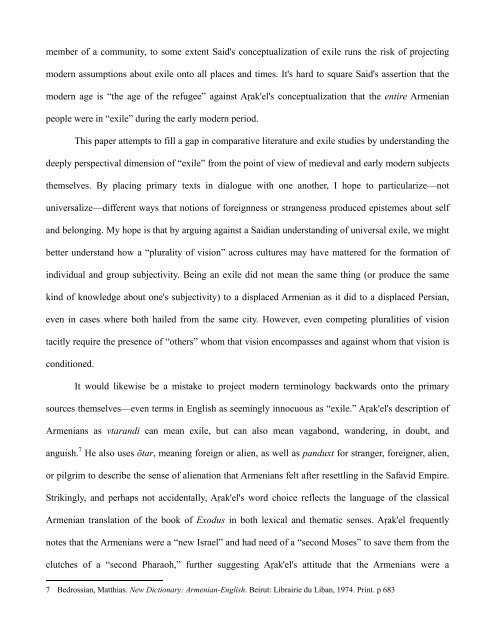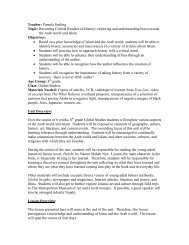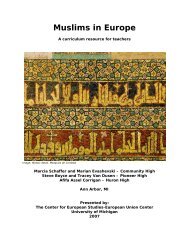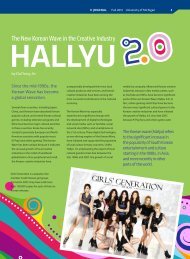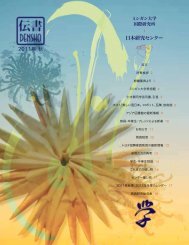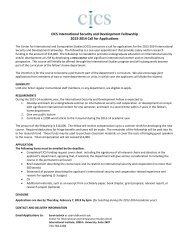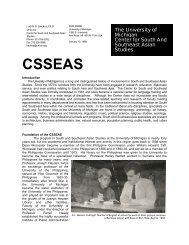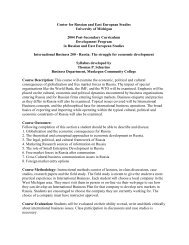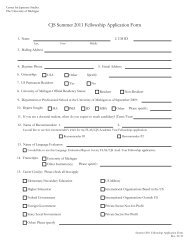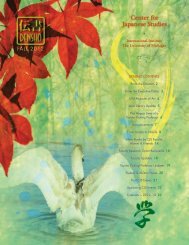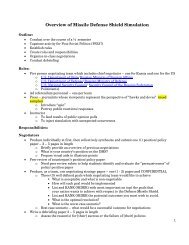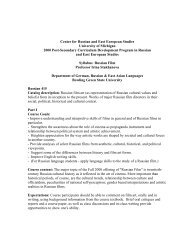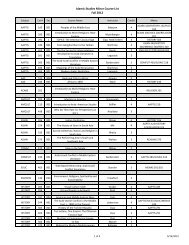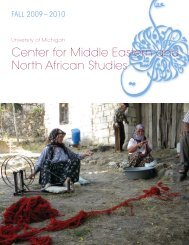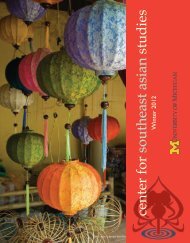The Third Annual International Graduate Student Workshop ...
The Third Annual International Graduate Student Workshop ...
The Third Annual International Graduate Student Workshop ...
Create successful ePaper yourself
Turn your PDF publications into a flip-book with our unique Google optimized e-Paper software.
member of a community, to some extent Said's conceptualization of exile runs the risk of projecting<br />
modern assumptions about exile onto all places and times. It's hard to square Said's assertion that the<br />
modern age is “the age of the refugee” against Aṛak'el's conceptualization that the entire Armenian<br />
people were in “exile” during the early modern period.<br />
This paper attempts to fill a gap in comparative literature and exile studies by understanding the<br />
deeply perspectival dimension of “exile” from the point of view of medieval and early modern subjects<br />
themselves. By placing primary texts in dialogue with one another, I hope to particularize—not<br />
universalize—different ways that notions of foreignness or strangeness produced epistemes about self<br />
and belonging. My hope is that by arguing against a Saidian understanding of universal exile, we might<br />
better understand how a “plurality of vision” across cultures may have mattered for the formation of<br />
individual and group subjectivity. Being an exile did not mean the same thing (or produce the same<br />
kind of knowledge about one's subjectivity) to a displaced Armenian as it did to a displaced Persian,<br />
even in cases where both hailed from the same city. However, even competing pluralities of vision<br />
tacitly require the presence of “others” whom that vision encompasses and against whom that vision is<br />
conditioned.<br />
It would likewise be a mistake to project modern terminology backwards onto the primary<br />
sources themselves—even terms in English as seemingly innocuous as “exile.” Aṛak'el's description of<br />
Armenians as vtarandi can mean exile, but can also mean vagabond, wandering, in doubt, and<br />
anguish. 7 He also uses ōtar, meaning foreign or alien, as well as panduxt for stranger, foreigner, alien,<br />
or pilgrim to describe the sense of alienation that Armenians felt after resettling in the Safavid Empire.<br />
Strikingly, and perhaps not accidentally, Aṛak'el's word choice reflects the language of the classical<br />
Armenian translation of the book of Exodus in both lexical and thematic senses. Aṛak'el frequently<br />
notes that the Armenians were a “new Israel” and had need of a “second Moses” to save them from the<br />
clutches of a “second Pharaoh,” further suggesting Aṛak'el's attitude that the Armenians were a<br />
7 Bedrossian, Matthias. New Dictionary: Armenian-English. Beirut: Librairie du Liban, 1974. Print. p 683


